Kaveh Akbar
I really do sincerely feel that bewilderment is at the core of every great poem, and in order to be bewildered, you have to be able to wonder. You absolutely have to be permeable to wonder. —Kaveh Akbar
A neighboring blog (so to speak), The Poetry Department…aka The Boynton Blog, not long ago posted this quote from the poet Kaveh Akbar. I had never heard of him, but I’ve been curious about him ever since, and luckily managed to lay my hands on his book, Calling a Wolf a Wolf (Alice James Books, 2017).
So now I’m embarrassed. Kaveh Akbar is huge. He is the poetry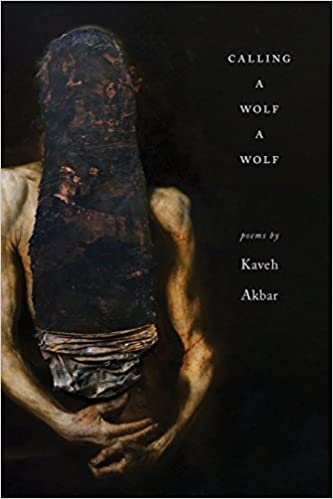 editor of The Nation, his poems have appeared all over the place, including The New Yorker, which I read faithfully (or thought I did), teaches all over the place, and founded Divedapper, “a home for dialogues with the most vital voices in American poetry.”
editor of The Nation, his poems have appeared all over the place, including The New Yorker, which I read faithfully (or thought I did), teaches all over the place, and founded Divedapper, “a home for dialogues with the most vital voices in American poetry.”
Having confessed to my obliviousness, I hardly consider myself to be a reliable guide to his poems. But a few clues about this book: a yellow sticky note that a previous reader left between pages, reading “addiction”; the sticky note borne out by the epigraph to the first section, “All sins tend to be addictive, and the terminal point of addiction is damnation” (W. H. Auden).
Themes interwoven (and overlapping) throughout the poems: alcoholism, hunger, desire, sex, God, death.
Sample lines: “If the body is just a parable / about the body if breath / is a leash to hold the mind” (“Against Dying”).
And: “blue water plus yellow sun equals // green plants it’s almost too simple to speak” (“The Straw Is Too Long, the Axe Is Too Dull”).
Well, it all just blows my mind.
francine j. harris’s praise from the back cover: “You can open this stunning debut, Calling a Wolf a Wolf, anywhere and find the critical tenderness that permeates Kaveh Akbar’s work.” I heartily agree. Or, as in the quote I began with, the poems are everywhere “permeable to wonder.” I don’t pretend to fathom this book, and certainly not this poet on one read-through, but here is one poem—others have more elaborate choreography, most are much longer—
Recovery
First, setting down the glass.
Then the knives.
Black resin seeps
into the carpet.
According to science,
I should be dead.
Lyptus table, unsteady
boat, drifts away.
Angostura, agave,
elderberry, rye—
the whole paradisal
bouquet spins apart.
Here, I am graceless.
No. Worse than that.
—Kaveh Akbar

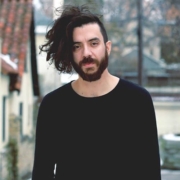
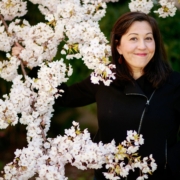
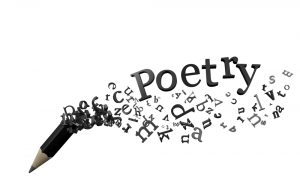

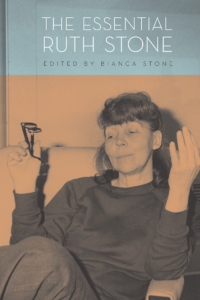 “Orchard” in a small Modern Library anthology with a blue cover: Twentieth Century American Poetry. Published by Random House in 1944, and again in 1963, that “Twentieth-Century” seems poorly chosen, or at least arbitrary. I mean, why did the editors decide to include Emily Dickinson? Perhaps because she was published in the 20th century? But in 1944, we still had half a century to survive and write about!
“Orchard” in a small Modern Library anthology with a blue cover: Twentieth Century American Poetry. Published by Random House in 1944, and again in 1963, that “Twentieth-Century” seems poorly chosen, or at least arbitrary. I mean, why did the editors decide to include Emily Dickinson? Perhaps because she was published in the 20th century? But in 1944, we still had half a century to survive and write about!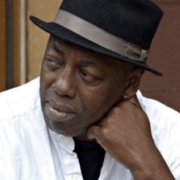
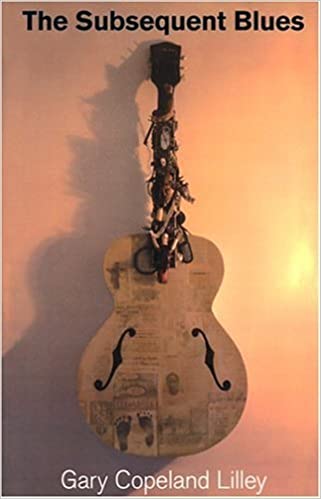 could swear my daughters’ high school choir teacher was in the room, raising her arms in a hallelujah and exclaiming, “Take me to church!”
could swear my daughters’ high school choir teacher was in the room, raising her arms in a hallelujah and exclaiming, “Take me to church!”